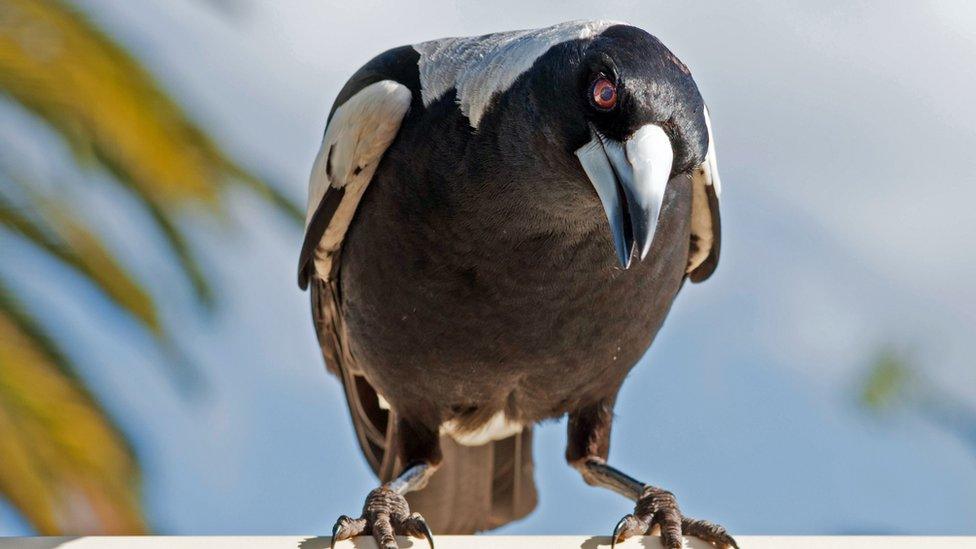Magpies team up to remove trackers and outwit scientists
- Published
- comments

Magpies are known for their intelligence
A group of magpies have outsmarted scientists in Australia by helping each other to remove tracking devices!
The scientists had attached GPS trackers to a group of five magpies, hoping to learn about their movement and to test the technology.
What they didn't expect was for the clever birds to work together to remove the small backpack-like devices from each other.
The magpies worked together to remove the trackers
The research, published in the journal of Australian Field Ornithology, showed the magpies using "co-operative behaviour and problem solving" to get rid of the trackers.
The scientists designed the harness so that it could be removed by a magnet which was placed at an outdoor feeding station.
A magnet or scissors were needed to remove the harness and they hoped that this way they could easily get the data without having to catch the birds again.
But instead of learning more about the movement of the birds, the scientists were surprised at how quickly they worked together to remove the devices.
They observed one bird which pecked at their own harness before being approached by other birds that also pecked at the same point managing to release it within ten minutes.
Within hours most of the other trackers were taken off in a similar way.
Birds to see on your daily walk
Dominique Potvin, one of the research team from the University of the Sunshine Coast, said the results were surprising:
"While we're familiar with magpies being intelligent and social creatures, this was the first instance we knew of that showed this type of seemingly altruistic behaviour: helping another member of the group without getting an immediate, tangible reward.
"Just like magpies, we scientists are always learning to problem solve," she added.
"Now we need to go back to the drawing board to find ways of collecting more vital behavioural data to help magpies survive in a changing world."
- Published4 February 2022
- Published7 September 2021
